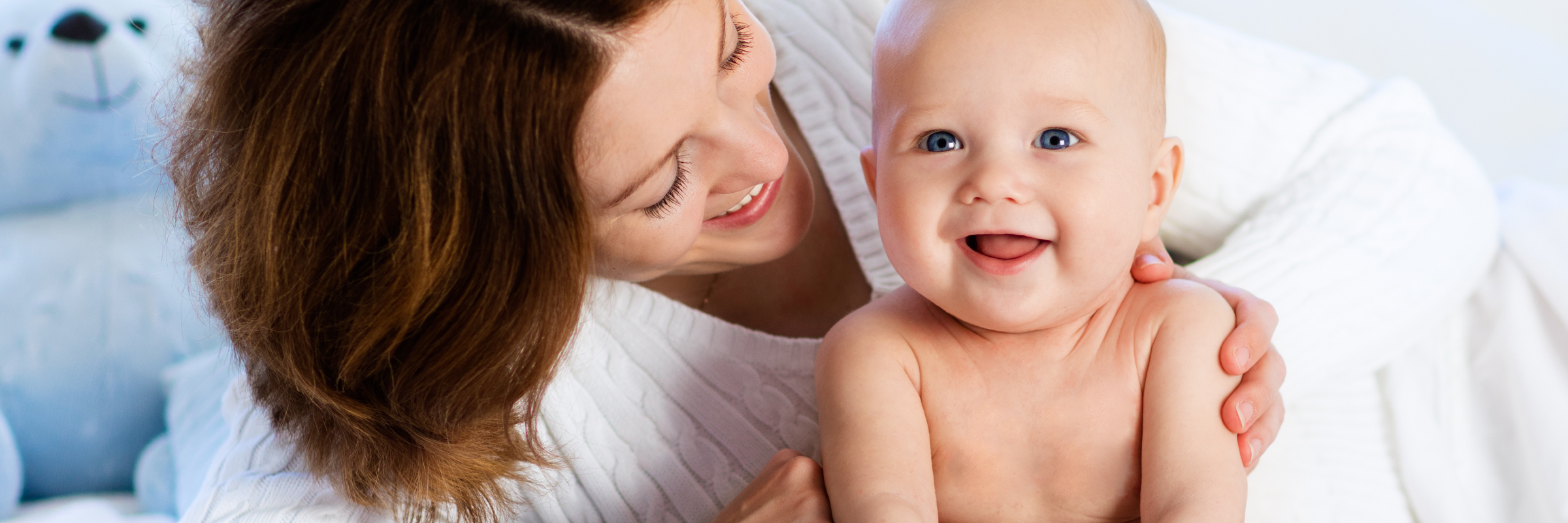
Article at a Glance
Eczema is a common concern for young children, affecting nearly one out of five children under the age of 2. In Utah, children suffering from eczema may have an especially hard time. Wind, low humidity, and cold temperatures can all lead to flare-ups, which means you should be extra careful with your child’s skin during the winter season and mindful of the treatments you use. Before stepping up into additional treatments, make sure you have the basics covered: moisturize your child with an unscented, high quality lotion after each bath and several times a day. Then, change the last sentence in that paragraph to this: If moisturizing isn’t cutting it, and the itching and pain of dry, inflamed skin is still leaving your child miserable, there are at-home treatments to add to your regimen.
The internet provides a wealth of information about eczema remedies, but parents should make sure to consult a pediatrician first before starting any new regimens. What if the treatment you found on a friend’s mommy blog that claims to give miraculous relief is actually an allergic trigger for your child’s eczema? Goodbye small itchy patch—hello full-on eczema flare-up.
The old saying that “an ounce of prevention is worth a pound of cure” really rings true when caring for a child with eczema. We always recommend that parents avoid harsh soaps and look for unscented, gentle cleansers and detergents instead. If you moisturize your child’s skin after every bath and shower and keep track of potential triggers to avoid in the future, you can help keep those unpleasant flare-ups at bay. – Dr. Kevin Nelson
Treated Baths: Children with eczema should bathe, but parents must ensure that the bath improves, rather than worsens, a child’s eczema. Unscented bath additives like colloidal oatmeal soothe the skin, but be careful that your child’s bath isn’t too hot, and that you’re not using any scented or irritating soaks or bubbles. Hot water leaches out skin’s natural moisture, and heavy scents contain chemical compounds that can be highly irritating.
For best results after a lukewarm, unscented bath, children should be dried off immediately and have moisturizer applied to the entire body. Babies, toddlers, and small children will need parental intervention to ensure that the entire body is covered, while older children may only need help covering hard-to-reach areas. Leaving areas of the skin unmoisturized after bathing is a surefire way to strip your child’s skin of natural moisture and make a flare-up more likely.
Oils: Besides prescription and over-the-counter ointments, creams and lotions, many parents are turning to oils to help moisturize and protect a child’s eczema-prone skin. Coconut oil is becoming increasingly popular and may be helpful to eczema sufferers, with its mild anti-inflammatory and antimicrobial properties. If your pediatrician verifies that pure, unscented coconut oil is non-irritating for your child’s skin, it can help create a barrier on the skin to hold moisture in and soothe irritation like other moisturizers.
Some problematic oils have also been cropping up. Essential oils are popular home remedies, but these ultra-concentrated substances can be very irritating, even when mixed with “carrier oils” like coconut oil. For example, lavender oil contains natural compounds that have been shown to trigger allergic eczema flare-ups. To calm skin, avoid any strong fragrance. The smell of essential oils comes from volatile aroma compounds. When essential oil is exposed to air (and skin), those volatile compounds are released, creating the scent.
Wet Wraps: The skin of children with eczema has trouble retaining moisture. That lack of moisture contributes to inflammation and an insufficient protective barrier. Treatments that help hold in moisture are a major way to soothe the irritation of eczema and help reinforce skin’s natural protection. Wet wrapping is putting damp absorbent cloth against skin for hours, sometimes even overnight. Some companies even design special “wet wrap” suits for children with severe eczema to help entire bodies retain crucial moisture.
Having too much damp cloth on a child’s body for a long period of time can make them chilly and uncomfortable. Parents are encouraged to change wet wraps frequently and make sure they’re only damp—not soaking wet. Also, note that wet wrapping has its own hazards and can interfere with some prescription treatments. Make sure to check with your pediatrician before starting.
The fact is, no two children are the same. Eczema is an immunologic condition—associated with your child’s unique immune response—meaning that symptoms, triggers, and treatment results will vary child-to-child. That may seem like bad news, but it can also be a good thing. What may be a trigger for one child doesn’t have to automatically mean restrictions for yours. For example, some children may experience flare-ups from chlorinated water, but many are completely unaffected. Whatever your child’s unique situation is, keeping in touch with your pediatrician and practicing proper moisturization and healthy bathing habits can go a long way towards preventing eczema flare-ups and keeping your child’s skin feeling comfortable.
For more information about eczema and useful home remedies, visit the National Eczema Association.